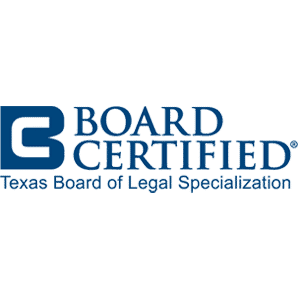Sep 21, 2023 - Personal Injury by Justin Roberts
If you’re an injured worker in Texas, it’s important to understand your rights in order to protect yourself and seek fair compensation. Whether your employer participates in workers’ compensation or not, you have fundamental rights that must be respected. Employers have legal obligations to maintain environments that minimize the risk of accidents and injuries.
If you have suffered an injury while at work, you should know that you have the right to report it and, more importantly, seek appropriate medical attention promptly.
We understand that navigating the world of injured employee rights can be overwhelming. You may be wondering about the compensation you are entitled to, or what to do if your employer doesn’t participate in workers’ compensation. Don’t worry, though—our East Texas workplace accident lawyers can help.
Let’s explore the basic rights you have as an injured employee, regardless of whether your employer participates in workers’ compensation or not. We’ll cover your possible legal options and the potential damages you can recover. Along with that, we’ll shed light on situations where you could be eligible to file both a workers’ comp claim and a liability claim, thereby maximizing your chances of receiving the fair compensation you deserve.
Basic Rights of Injured Employees in Texas
As a Texan who was injured on the job, you have fundamental rights that safeguard your well-being and protect your interests. These rights are the bedrock of workplace safety and fair treatment, empowering you to navigate the aftermath of an injury with confidence.
Understanding and asserting the following basic rights is essential to ensure your safety, well-being, and fair treatment as an injured employee.
Right to a Safe Workplace and Employer Responsibilities
Your safety is a top priority, and your employer has a legal duty to provide a safe and hazard-free work environment. This means they must take proactive measures to identify and eliminate potential risks, provide necessary safety equipment, and implement proper training programs. If you believe your workplace is unsafe, you have the right to report hazards and unsafe practices.
Right to Report Workplace Injuries and Seek Medical Treatment
If you’ve been injured on the job, you have the right to report the incident to your employer, regardless of how minor the injury may seem. Reporting the injury promptly is crucial as it initiates the process of getting appropriate medical attention and possible compensation, while allowing for proper documentation. If your employer participates in workers’ compensation, they should provide you with information on how to file a workers’ compensation claim.
Right to Protection Against Retaliation
Your employer cannot retaliate against you for exercising your rights as an injured employee. This includes reporting injuries, filing a workers’ compensation claim, or seeking medical treatment. Retaliation can take various forms, such as termination, demotion, or harassment. If you experience any form of retaliation, you have the right to take legal action to protect yourself.
Workers’ Compensation Participants vs. Non-Subscribers: A Quick Summary
In all other U.S. states, employers are typically required to provide workers’ compensation insurance to their employees. However, Texas allows employers to opt out of the system. Such employers are referred to as “non-subscribers.”
Below, we’ll take a closer look at your legal options and procedures for each scenario. But first, let’s take a look at the big picture.
- If your employer offers workers’ compensation, you can file a workers’ compensation claim for medical and income benefits no matter who was at fault for the accident. However, you will not have the right to sue your employer for personal injury or obtain any compensation for pain and suffering.
- If your employer is a non-subscriber, you would need to file a personal injury claim against your employer to obtain compensation. On the plus side, personal injury settlements tend to offer greater compensation than workers’ compensation benefits. However, your claim may take a long time to settle, and you must prove that your employer was at fault.
Legal Options and Damages in Workers’ Compensation Cases
Workers’ compensation is designed to provide prompt medical treatment and wage replacement to injured employees, regardless of fault. Here are key aspects to consider in workers’ compensation cases:
- The Workers’ Compensation System in Texas. Workers’ compensation is a state-regulated insurance program that aims to protect both employers and employees. In Texas, it is a no-fault system, meaning that you can receive benefits regardless of who caused the workplace injury. By participating in workers’ compensation, employers gain immunity from most personal injury lawsuits related to workplace accidents.
- Types of Benefits Available. If you’re injured on the job and qualify for workers’ compensation, you can receive various benefits, including coverage for medical expenses, wage replacement, and disability benefits. Medical benefits include doctor visits, hospitalization, prescriptions, and necessary medical treatments. Wage replacement typically covers a portion of your lost wages during the time you are unable to work due to the injury. Disability benefits are provided if the injury results in a permanent impairment or affects your ability to work in the future.
- Limitations and Exclusions. While workers’ compensation provides essential benefits, there are limitations and exclusions to consider. For instance, you may not receive benefits for pain and suffering or punitive damages. Additionally, workers’ compensation may not cover certain pre-existing conditions or injuries that occur outside the scope of employment.
The Process of Filing a Workers’ Compensation Claim
To initiate a workers’ compensation claim, report the injury to your employer as soon as possible. Your employer should provide you with the necessary claim forms. After submitting the claim, a claims administrator will review your case and determine the benefits you are eligible to receive.
Damages Recoverable in Workers’ Compensation Cases
In workers’ compensation cases, injured employees are strictly limited to obtaining only a portion of the economic losses resulting from their injury. There is no opportunity to recover compensation for non-economic damages such as pain and suffering.
Workers’ comp benefits should cover all necessary medical treatment expenses, travel expenses to appointments (if you need to travel more than 30 miles) and vocational rehabilitation. It will also cover a portion of your pre-injury income in wage replacement benefits, typically 70% up to a maximum weekly benefit. Income benefits are also usually limited to a maximum period of time, unless you are eligible for lifetime income benefits due to a qualifying disability.
Legal Options and Damages in Non-Workers’ Compensation Cases
If your employer does not participate in workers’ compensation, you still have legal options to seek compensation for your work-related injuries. In non-workers’ compensation cases, you may be eligible to pursue a personal injury claim against your employer or another liable party. Here’s what you need to know:
- Non-Workers’ Compensation Cases in Texas. When your employer does not carry workers’ compensation insurance, you have the right to file a personal injury claim directly against them. Additionally, if your injury was caused by the negligence of a third party (e.g., a subcontractor, manufacturer, or property owner), you may be entitled to pursue a liability claim against that party.
- When and How to Pursue a Negligence Claim Against the Employer. To pursue a negligence claim against your employer, you must demonstrate that they were negligent in providing a safe work environment, which directly led to your injury. Proving negligence requires gathering evidence, witness testimonies, and expert opinions to establish liability. It’s essential to consult with an experienced personal injury attorney to build a strong case and protect your rights throughout the process.
- Claims Against a Third Party. In the case of a third-party negligence claim, you must show that the third party’s actions or omissions contributed to your injury. This can be a complex process, as multiple parties may share liability. A skilled attorney will navigate the complexities and advocate on your behalf to secure the compensation you deserve.
Damages Recoverable in Non-Workers’ Compensation Cases
Personal injury cases allow for a much greater and broader range of damages that workers’ compensation claims.
For one, you can obtain full compensation for all your economic losses, such as medical expenses, lost wages, and vocational rehabilitation. You can demand 100% of your lost wages—including future anticipated wage increases and earning capacity—rather than just 70%.
You can also seek compensation for non-economic losses, such as pain and suffering, emotional distress, and loss of enjoyment of life. This is a significant advantage for potential claimants. In a big personal injury claim involving serious injuries, it’s not unusual for the pain and suffering damages awarded to be several times more than the economic losses alone.
RELATED: How Much Should I Ask for in a Personal Injury Settlement? • Roberts & Roberts (robertslawfirm.com)
Filing Both Workers’ Compensation and a Liability Claim: Dual Claims
As mentioned above, you cannot sue a direct employer for a workplace injury if they provide workers’ compensation coverage. However, if your injury was caused by the negligence of another third party, you could pursue a liability claim against them while also obtaining workers’ compensation benefits through your employer.
In Texas, this scenario is common for injuries that occur on a construction site or oil field, although it can certainly occur in other instances as well. For example, you might have a liability claim against a general contractor, subcontractor, site owner, or equipment manufacturer.
Here’s what you should know about filing both types of claims:
- Understanding Dual Claims. When an injured employee files both a workers’ compensation claim and a liability claim, it is known as a “dual claim.” These dual claims allow you to seek compensation from multiple sources and benefit from larger pool of available insurance coverage, which increases your chances of receiving the full compensation you deserve.
- Advantages of Dual Claims. Filing dual claims can offer several advantages. While workers’ compensation provides essential medical and wage replacement benefits without the need to prove fault, liability claims allow for broader compensation, including pain and suffering damages and extra wage losses not covered by workers’ compensation. Pursuing both claims may result in a more comprehensive recovery, encompassing the full scope of your physical, emotional, and financial hardships.
- Complexities and Considerations. Dual claims can be complex, as they involve coordinating between different insurance providers and legal processes. Each claim must be carefully handled to avoid any conflicts or overlap—you cannot receive “double compensation” for lost wages, for example. Any settlement reached in one claim can impact the other, making it crucial to have skilled legal representation to navigate these complexities effectively.
If you find yourself in a situation where you believe multiple parties share liability for your injury, consulting an experienced personal injury attorney is essential. They will guide you through the intricacies of dual claims and work diligently to secure the maximum compensation available for your specific case.
Seeking Legal Representation and Guidance
Navigating the complexities of injured employee rights, workers’ compensation, liability claims, and dual claims can be overwhelming and daunting. It’s at this critical juncture that seeking professional legal representation and guidance becomes essential. An experienced personal injury attorney can be your steadfast advocate, ensuring your rights are protected and your best interests are prioritized throughout the process.
At Roberts & Roberts, our dedicated team of attorneys has the knowledge, expertise, and passion to protect your rights and advocate for fair compensation. We understand the challenges injured workers face and are here to shoulder the legal burden, allowing you to focus on your recovery.
If you or a loved one has suffered a workplace injury, don’t navigate the complex legal landscape alone. Contact Roberts & Roberts today by calling (903) 251-2873 or contacting us online to schedule your consultation and take the first step towards securing the compensation you deserve.
Justin is an attorney at Roberts & Roberts and focuses his practice on mass tort litigation, where he specializes in helping individuals who are harmed by recalled or unsafe pharmaceutical drugs and medical devices. He has earned recognition as a “Top 40 Under 40” Trial Lawyer by the National Trial Lawyers. Prior to joining Roberts & Roberts, Justin served as an attorney in all three branches of Texas’s state government, including as a Briefing Attorney on the Texas Supreme Court. He also represented electric and natural gas utilities in complex regulatory proceedings before the Public Utility Commission of Texas and the Railroad Commission of Texas. Justin is a published author in the St. Mary’s Law Journal.









